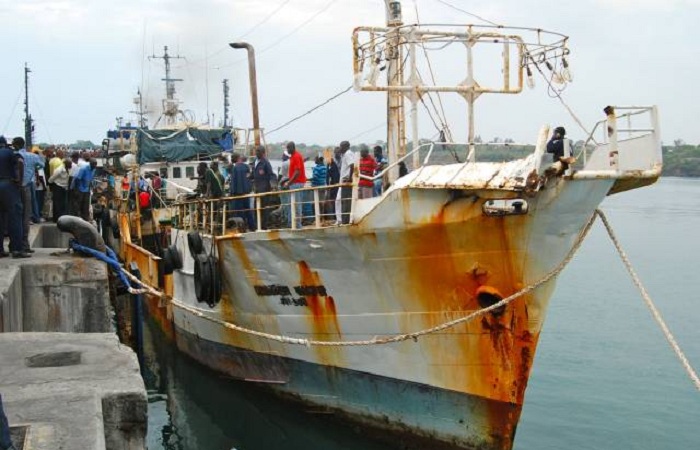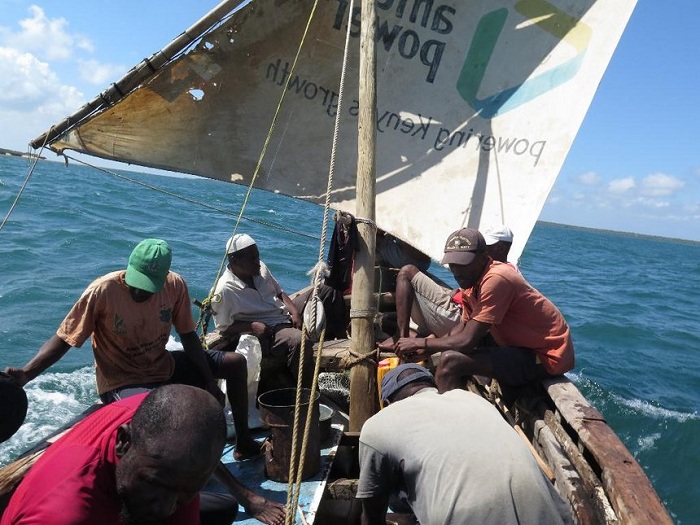Mombasa,KENYA:Michael Mutua (not his real name) woes started here in Mombasa in 2015 after a recruitment agent approached him with a job offer on a Burundian owned Zanzibar registered ship.
Michael, a Marine engineer with more than 15 years experience, took up the job hoping it would be like his earlier jobs where he had not faced major challenges .
But unknown to Michael, this job offer had its own unique challenges which he came to know of once he landed in Philippines, where the vessel was on anchorage.
According to Michael, the ship had hurriedly been registered without proper inspection after the owner purchased it from a Filipino owner and they only realized that after they took off from Philippines for Mombasa where the owner expected the ship would be put in use.
“The ship engine had eight units, but a few days on the journey three of the units developed complications we were short of spare parts,” Michael told Baraka FM.
Michael added that they had to dock the ship in Malaysia where after being stranded for over three months with no pay, they tried to contact their recruitment agent in Kenya who told them that he was not in a position to help them.
Micheal’s ordeal is not a new phenomenon, each year thousands of seafarers and ship workers become stranded in foreign countries with no pay after their vessels are detained due to poor conditions of the ship.
In August this year, 15 Filipinos were rescued from a worn out vessel that was on anchorage at the Mombasa port.
The Philipine migrant workers had flown into Kenya from the Philipines through the Jomo Kenyatta International Airport and .
However Taiwanese national owning the Lapaz registered vessel ended up locking them in the vessel for over eight months; forcing them to work for long hours to repair the vessel without pay and basic needs like clean drinking water.
According to the Mission to Seamen , which is among the organizations that rescued the workers, the owner of the vessel was living in a hotel in Mombasa while promising the workers to work hard to repair the broken vessel so that it could leave for Malaysia where he expected to deploy it as a fishing vessel.

“The conditions in the vessel were so bad that if they were not rescued on time they would have died,” Reverend Moses Muli the Chaplain at the Mission for Seamen told Baraka FM.
Flags of convenience
The two ships in this scenario, were flying a ‘flag of convenience’.
A flag of convenience commonly abbreviated as ‘FOC’, is a maritime business practice where ship owners register their ships in countries where the laws governing compliance of shipping vessels are lenient helping them evade taxes,labour unions,and payment of social security.
The major flags of convenience include Panama,Liberia,Jamaica and Zanzibar.According to the International Transport workers federation(ITF) more than 2000 seafarers die each year and the majority of those deaths are on ships flying the “Flag of convenience”.
ITF which has been running a campaign against such flags says the number of ships being registered in those countries is rising at an alarming rate.
Less vessels registered in Kenya
Most of the countries whose flags have been classified as ‘FOC’s operate an open registry form of registration.
Kenya operates a closed registry vessel registration system.
Here in Kenya, only one vessel has been registered in the closed registry system.
Officials from Kenya Maritime Authority say plans are underway to woo more ship owners to register their vessels in Kenya.
With the Kenyan unemployment rates being at almost 40%, according to the United Nations Human development index 2017, most Kenyan seafarers have no option but to accept employment in ‘FOC’ ships.
“Most of the seafarers really struggle to get those opportunities some even accept the jobs without signing a contract,” Stephen Ojiambo the secretary General at the Seafarers union of Kenya says.
Tip of the iceberg
Shortage of vessels registered in Kenya is not the only problem facing Kenyan seafarers.
According to the Maritime labor convention 2006, individual countries are supposed to set minimum salary standards for its seafarers; which Kenya has not yet set despite ratifying the convention in 2013.
According to Ojiambo, this loophole leaves Kenyan seafarers vulnerable to exploitation by ship owners.
“You will find a Kenyan getting paid $300 a month and an Indonesian national on the same job gets paid $850 but because of the levels of unemployment here, the pay gap is least of his worries” reveals Ojiambo.

Ojiambo claims that unlike other countries where foreign embassies have departments to address maritime seafarers grievances, Kenyan foreign embassies lack such departments.
“The embassy will help in cases of repatriation but not in complex cases involving unpaid salaries or cases where the vessel needs to be sold for stranded workers to be paid,” Ojiambo says.
Suffering in Silence
According to reverend Muli, other than fear of unemployment, most seafarers opt to suffer in silence over fears of being blacklisted should they report a ship owner to the relevant authorities.
“If a seafarer is blacklisted by a manning agency,it becomes impossible for him to get employment on a ship,” Muli says.
He adds that most of the times they are forced to be very careful not to expose the name of the seafarer who raised a complain to avoid injuring his reputation among agents.
Rogue agents
With most seafarers relying on manning agents to secure employment, Officials from KMA argue that most seafarers play a part in getting themselves stranded in foreign countries in poor conditions and no pay.
“Most of the cases we are dealing with, you find they did not contact us for assistance and advice when they were offered employment contracts,” Josephine Mabuto, the authority’ seafarers assistant register says.
“At times some of them will even start working without signing a contract,” Mabuto adds.
Kenyans stranded in Indonesia
Michael managed to leave Malaysia in May last year.
However Michael says five of his Kenyan colleagues remain stranded in the Indonesian capital Jakarta where the vessel was detained immediately after leaving Malaysia.













